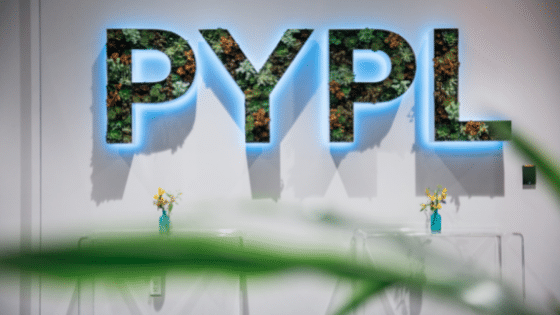The payments giant Paypal doesn’t intend to be outdone in the race for global dominance in the white-hot buy now, pay later space. Today it announced its plan to acquire Japanse buy, now pay later platform Paidy for 300 billion yen, or roughly $2.7 billion.
Paidy was founded in 2008 and has become a leader in Japan’s BNPL industry. According to Research and Markets, Japan’s BNPL volume will hit more than $10 billion this year.
This deal is only about a tenth of what Square laid down to acquire Afterpay. Yet there is at least one key difference. Paypal paid in cash, while Square paid in stock. Just in April, Paidy raised $120 million to fuel its growth. Those investors, as well as Paidy’s founders, will likely see a very nice payday from this acquisition.
Paidy has 6 million registered users, and at least 700,000 merchants using the platform. And the company touts its proprietary technology for credit scoring, underwriting, and guaranteeing payments to merchants. BNPL platforms generally work with merchants to enable a split payment model that allows customers to break up a purchase into three or four equal payments, which are usually (but not always) interest-free.
Merchants generally pay a fee per transaction, but the BNPL platforms guarantee the full purchase price.
Paidy and most of its peers tout other advantages to offering BNPL. These include fewer abandoned checkouts (and thus higher conversion) and higher average orders.
Third Largest eComm Market
So what’s in this for Paypal? The payments company already has its own BNPL offering. This seems to be more about owning a bigger piece of Japan’s eCommerce market, which is the world’s third-largest, according to PayPal.
Here’s what PayPay had to say in the announcement.
“Paidy pioneered buy now, pay later solutions tailored to the Japanese market and quickly grew to become the leading service, developing a sizable two-sided platform of consumers and merchants,” said Peter Kenevan, vice president, head of Japan at PayPal. “Combining Paidy’s brand, capabilities, and talented team with PayPal’s expertise, resources, and global scale will create a strong foundation to accelerate our momentum in this strategically important market.”
Notably, Paidy will continue to operate as an independent brand in Japan. And its current leadership will stay in place. This includes its founder and executive chairman Russell Cummer, and president and CEO Riku Sugie.
International Consolidation
The Paidy acquisition is the latest, and one of the largest, examples of major global fintech companies acquiring regional BNPL players. In most cases, the acquiring company is allowing the acquired to carry on under its own brand and senior management. This is the case with Square-Afterpay. and ZipCo, an acquisitive Australian BNPL, has signaled will let UAE-based Spotti continue under its own label in that region. ZipCo has also recently acquired South African BNPL Flexpay after holding a minority investment since last April.
However, ZipCo recently rebranded its U.S. acquisition QuadPay as Zip So that may be a signal of things to come for its Africa-Middle East acquisitions. Zip also owns Twisto in Europe and a 25% stake in Philippines-based BNPL TendoPay.
These developments are all part of a pattern that we see continuing for a while at least. Large, well-funded global BNPLs acquiring smaller, fledgling regional BNPLs around the globe. There are a few reasons for this. The main one is simply to grow through acquisition. With so much competition in BNPL, organic growth is becoming increasingly challenging.
And these acquisitions shorten the growth curve when entering new markets. Zip is no doubt in a stronger position to expand and grow in Africa-Middle East having acquired two existing companies that had it entered on its own.
Pivot to Advertising?
Modern Retail brought an interesting BNPL subplot to our attention. All this competition and expansion is putting pressure on the bottom lines of the major BNPL platforms. Affirm and Afterpay both posted steep quarterly losses. And privately help Klarna is reported hemorrhaging cash in pursuit of international expansion.
This is creating pressure for new revenue streams. And hence, Afterpay has launched Afterpay Ads. The BNPL platform describes this as “a new suite of advertising products to help brands reach, acquire and activate high intent, loyal shoppers across the Afterpay ecosystem.”
This appears to be following in the model of Amazon, which has quietly grown its ad business to $21 billion and counting. According to Modern Retail, Klarna already has its own ad program. And both Sezzle and Affirm are reportedly looking at doing the same.
It’s certainly a smart business move to diversity. And these platforms can make a good case for serving ads for retailers on their platforms. Afterpay, for example, reports 18 million app downloads and 30 million monthly merchant referrals from its app. It says its new ad platform is powered by its iQ analytics platform that helps target ads effectively within the app.
Still, smart business or not, this development signals what we’ve been saying here for a little while. This space is beginning to look overbuilt. If these acquisitions start going for lower values, that will signal the bubble is at least leaking, if not bursting.
Investors Doubling Down
In the meantime, BNPL companies are still getting funded. Generously so. And we suspect the money will keep flowing for a while yet. Case in point. Today we read about Addi, a Colombian-Brazilian BNPL that just raised a $75 million extension to its Series B round. The extension brings the round to $140 million. This comes after raising $35 million in equity and $30 million in debt back in May. The company was founded in 2018 and has raised $220 million in debt and equity to date.
Addi‘s ambition is to bring digital commerce to Latin America, where less than 25% of the population has a credit card. BNPL is a payments solution that offers an end around credit cards. And that’s one reason its popularity has been propelled by younger consumers.





